War and parkour
For teens in war-torn countries like Syria, the risky sport provides escape

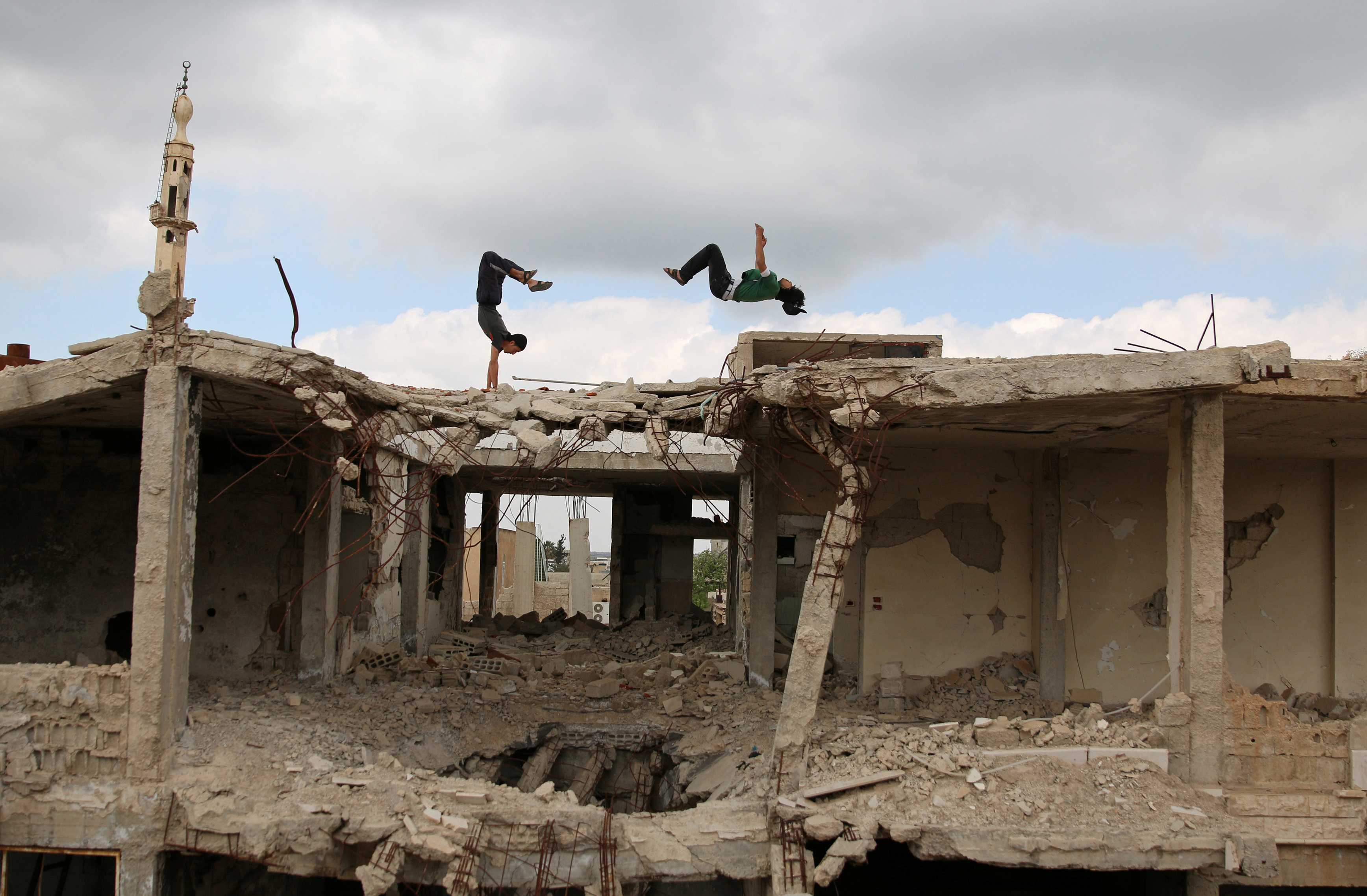
A free daily email with the biggest news stories of the day – and the best features from TheWeek.com
You are now subscribed
Your newsletter sign-up was successful
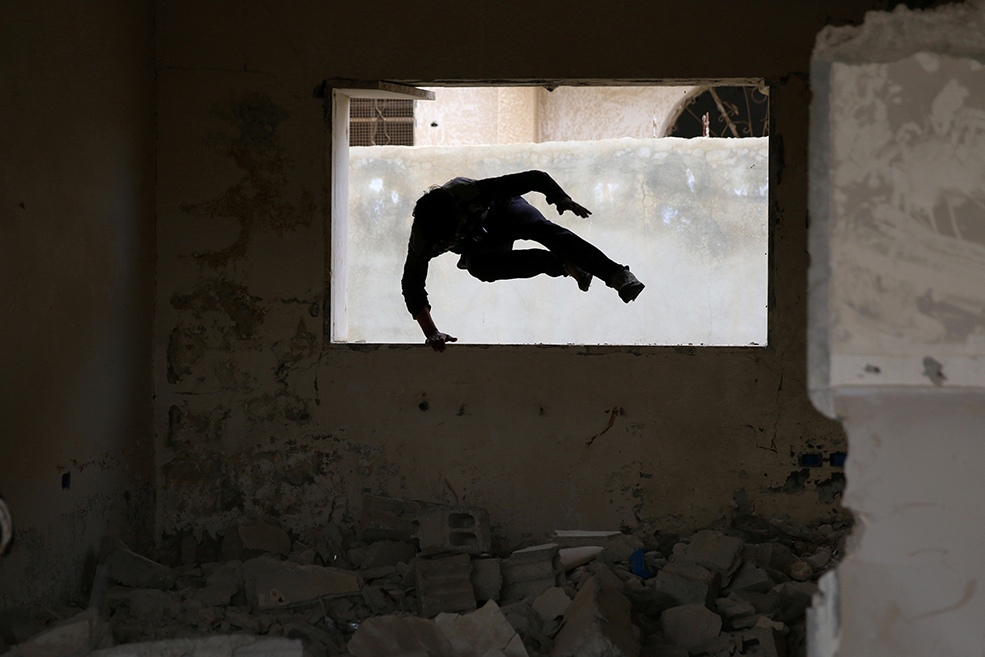
(REUTERS/Alaa Al-Faqir)Kadiri brought the discipline back to Inkhil when he returned in 2015 and now leads a team of 15 teens to perform in some of the most challenging parts of town. Spectators often watch, and the team also records and photographs their moves to share on social media. Physical danger is always in the mix: Broken toes, bruises, and twisted necks happen regularly, and Kadiri was once bedridden for days after throwing his back out during a stunt. But the risk is part of the allure.
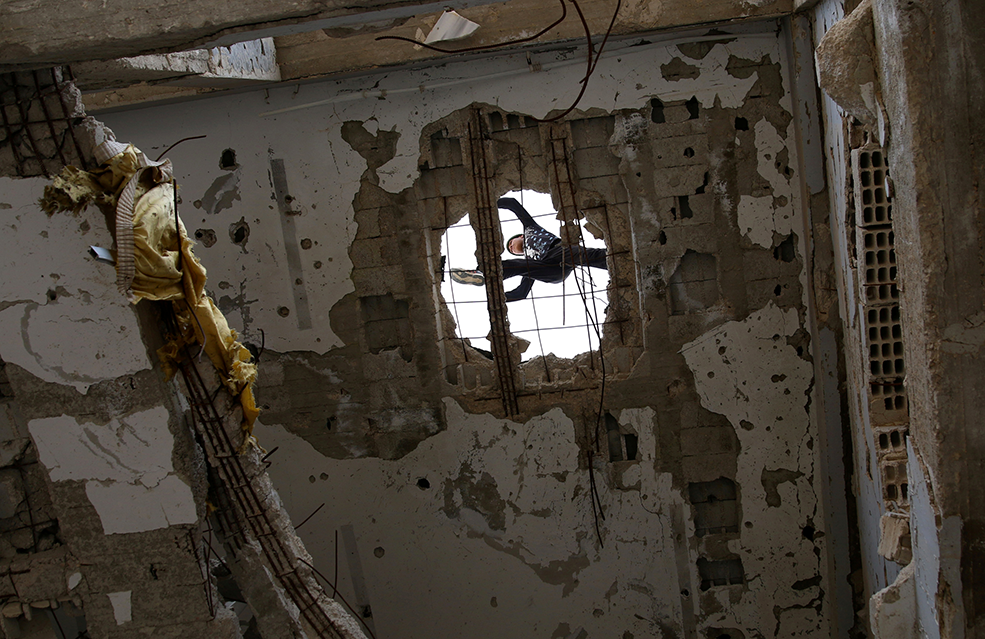
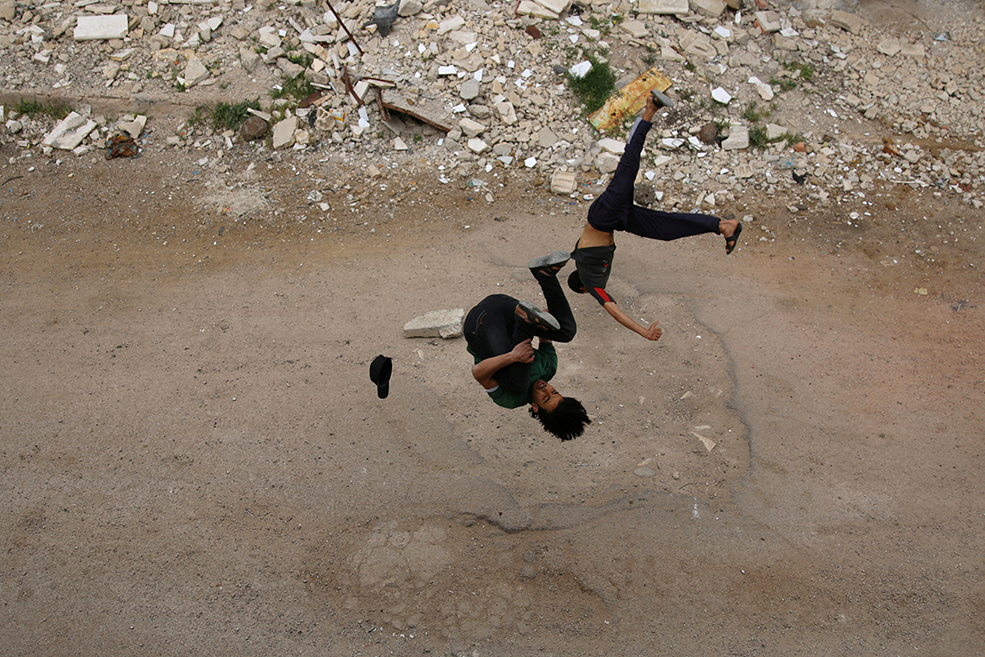
(REUTERS/Alaa Al-Faqir)For Kadiri and his team, parkour is about more than an adrenaline rush. "Parkour gets us out of the atmosphere of war and makes us forget some of our pain and sorrow," Kadiri told Reuters. "It makes me feel mythical."And the sentiment isn't unique to Inkhil: The sport has spread to other war-torn parts of the world — from Iran to Gaza and beyond — offering young people a way to feel powerful, to act their age, and gain a modicum of control in an otherwise chaotic existence."When I jump from a high place," an 18-year-old Syrian told Reuters, "I feel free."Here's a glimpse at the Inkhil parkour team's daring acrobatics.
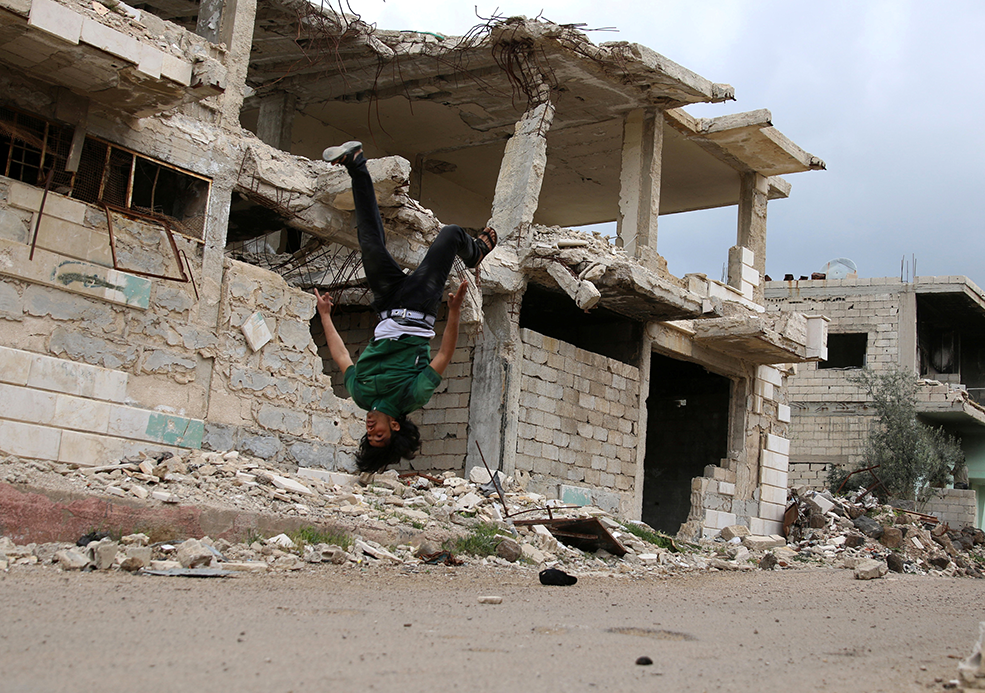
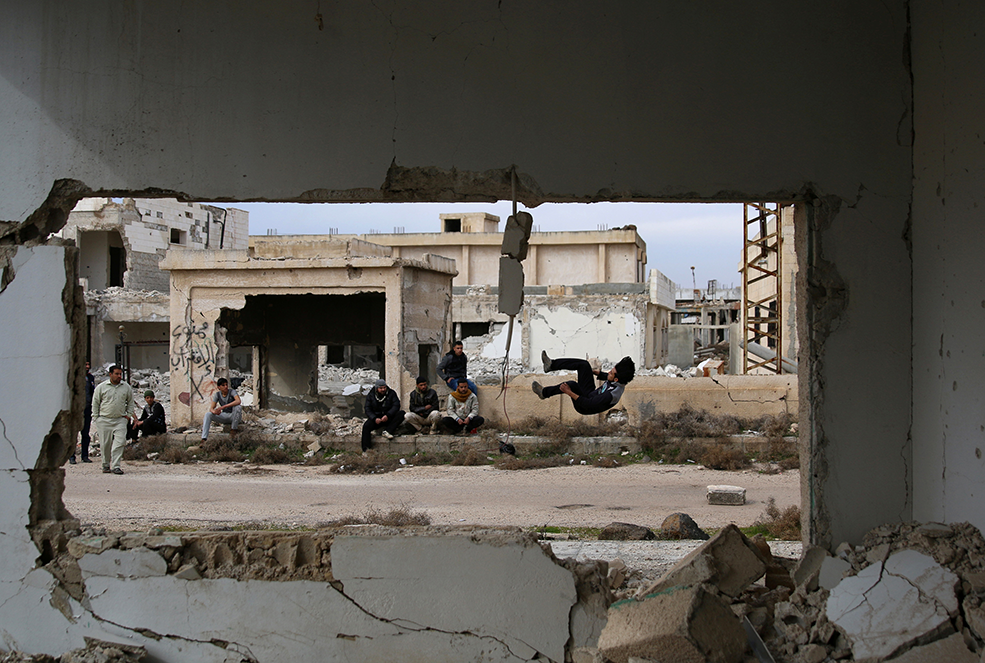
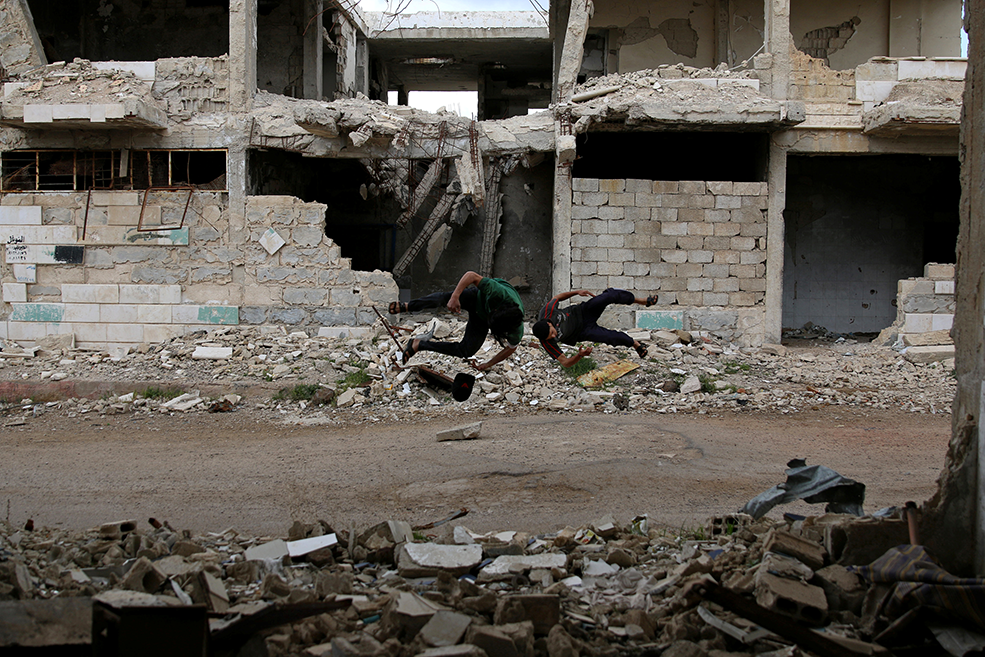
A free daily email with the biggest news stories of the day – and the best features from TheWeek.com
Kelly Gonsalves is a sex and culture writer exploring love, lust, identity, and feminism. Her work has appeared at Bustle, Cosmopolitan, Marie Claire, and more, and she previously worked as an associate editor for The Week. She's obsessed with badass ladies doing badass things, wellness movements, and very bad rom-coms.
-
 The environmental cost of GLP-1s
The environmental cost of GLP-1sThe explainer Producing the drugs is a dirty process
-
 Greenland’s capital becomes ground zero for the country’s diplomatic straits
Greenland’s capital becomes ground zero for the country’s diplomatic straitsIN THE SPOTLIGHT A flurry of new consular activity in Nuuk shows how important Greenland has become to Europeans’ anxiety about American imperialism
-
 ‘This is something that happens all too often’
‘This is something that happens all too often’Instant Opinion Opinion, comment and editorials of the day
